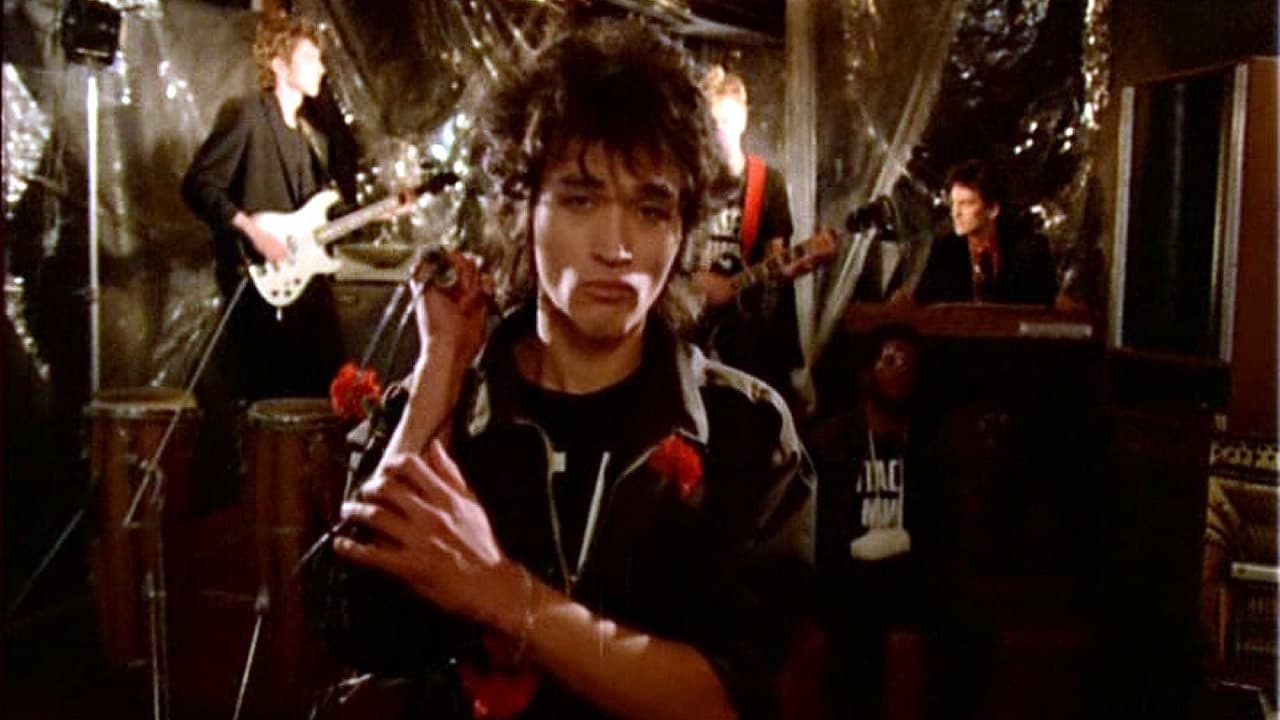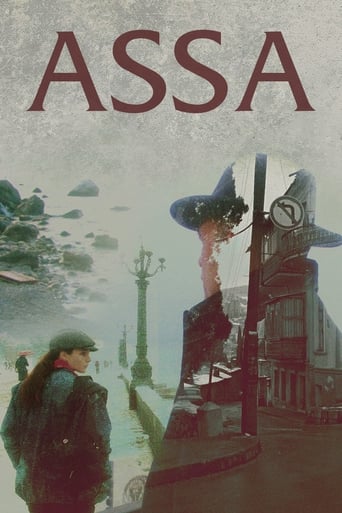

Assa is considered one of the greatest films of the post Soviet generation. The soundtrack is not very far from what we call hipster nowadays - divergence from the mainstream. There are many underground musicians that either contributed musically or artistically. Also, it focuses on a major issue that existed among the "perestroika youth". How to choose a life of honesty and civility, when corruption promises "white mountains". Who can we trust if not our government? What will be the future, what is important in a life? These are all the questions that this movie focuses on.Assa is a film for and by the youth and by the counter culture of its time. Aside from relevant problems being raised in the movie (a rare thing of its time), the film has notable music (that is still remembered and loved today by the grown up counterculture) and hipster style that existed and lived in Soviet Union before it became popular in US.If pre-perestroika and the mindset of different people during that time interests you, as well as learning about non-mainstream music and counterculture, this is the movie for you.
... View More*** Some Spoilers ***I guess one thing you have to remember is when this movie was done. It was a weird time as the country was going through changes and this film was that: different. It's not that it's the best movie ever made, or even a finer one, but what is important is not what it was, but what it wasn't: and that is it was not like all other soviet movie to date. It was commenting on the reality in a different way and to some degree was far more open than movies of the past. Case and point, when bananan argues with a cop about his earing. It was an argument of "I want" vs the old and tried soviet "Not Allowed". The Victor Tsoy song, in the end, asking for change, was again commenting on the same theme, that status quo is just not possible any more. Even the two lovers: the old vs new somehow relate to the theme. The plot itself is very shakespearean: older man, younger woman... younger man... younger woman falls in love with younger man... older man kills younger man... younger woman kills older man. It's really simple but yet it doesn't truly explain why people like this film. Overall, I think it became popular because it came at the right time, rather than anything else. I think a person, even who is not from soviet union can easily enjoy the film. I give it a 6 out of 10.
... View MoreThe face of Russia as it was in the 80's. The image of the young generation through the face of gloomy regime. Love story of 2 young people is stuck between the old norms of Soviet union and the new rising power of organized mafia, two ingredients which will affect the collapse of the 70 years socialist power. The young generation demand changes, and immediately but it's being suffocated by both sides of the old order, and the movie ends with legendary Viktor Tsoi's song "Changes" which became an anthem after Tsoi's tragic death in a car accident. A Parallel story in the movie is the murder of Russia's emperor on 12th March of 1801 which is probably a metaphor of constant corruption in Russia.
... View MoreWhen I think of this now, 12 years after I saw this movie for the first time, I can probably compare it somehow with "Fargo". The same gloomy colors, the same snow everywhere, the same slow motion of people dozing in winter like bears. The same sad realism in all the scenes, including the car chases, the same end. And also -- and this is the most amazing of it all, in my opinion -- the same feeling of light you experience at the end, despite the end which can hardly be called happy.This film also has a winning mixture of criminal plot and love triangle. (Remember "Heat"?). A young girl is waiting for her lover in the snowy Yalta, and he comes one night too late because of the storm -- and in this one night she meets a young musician who offers her to spend the night in his apartment. (Mind you, this is a Soviet film -- there are no sex scenes at all in the movie, but the simplest gestures become erotic as they are real, as we all have been in those situations of late teens who just discover each other). Her lover is an underworld tycoon who manages to plan some more of his dark affairs, to mislead the KGB trail and to entertain the girl -- he saw for everything but the musician. Clever, rich, attractive, charming when needed (although extremely cruel when needed as well), brilliantly educated erudite -- he can do nothing against a young boy who has nothing but a pure heart and a love this heart can generate. And as usual in the love triangles, it does not end well for the involved sides -- for some lethally, for some with awful soul scars...The movie is slow and viscous -- but this is its charm. The music of Grebenschikov (and the XVII-century piece of "Gorod Zolotoi", of course) became a real Russian classic; the historical jumps to the times of Paul I look like an original move of Sergei Solovyov and not like a ridiculous trial to look educated. The guest appearance of Victor Tsoi seems well-timed as well. And finally, Sergei Bugayev (the musician) has a winning role in itself, a martyr against his will -- but to play the parts of Alika and Krymov, it took all the talent of Tatyana Drubich and Stanislav Govorukhin, and they deliver the performances which will never be forgotten.A good test of movies' quality is watching it again, 10-12 years after its release. I watched it recently, and it became worse -- the colors of the Soviet film faded, and the voices became muter. Technicalities. But as for the movie itself, I dreamt of it at night. This was an epochal movie for the 80-ies, but one that remains as a monument even in the XXI century.
... View More